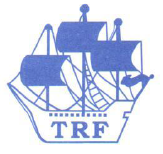Join Now | Free Trial | Login | Membership
Cargill Inc shuttered animal-feed mills in China in recent months partly because the rapid spread of a fatal hog disease has reduced demand, a company executive said on Friday.
The closures highlight the pain for global agriculture companies from the outbreak of African swine fever in China, the world’s top hog producer and pork consumer.
African swine fever, for which there is no cure and no vaccine, kills almost all infected pigs, though it does not harm people.
The disease has killed more than a million pigs in China since the nation’s first reported case last August, cutting demand for feed ingredients such as soymeal and pre-mixes, which are blends of vitamins and other nutrients sold by Cargill and other suppliers.
“This is not a six-month trend for China to recover,” Chuck Warta, president of Cargill’s animal nutrition and pre-mix business, said in an interview. “This is a 24-month, 36-month kind of resetting of the world’s population of animals.”
The outbreak accelerated closures of Cargill animal-feed mills in coastal regions of China that were also prompted by a westward shift over the past decade of the areas in which livestock are raised, Warta said. Most of the facilities will not be re-opened even if China gets African swine fever under control, he said.
Cargill closed three feed and animal-nutrition plants in the second half of the fiscal year that ended on May 31, representing an approximately 150,000-metric-tonne reduction in capacity, according to the company.
But Cargill still sees a bright future for its animal-nutrition business in China, Warta said. The company said it is spending $65 million to replace a pre-mix plant in Nanjing and is also buying land for a similar facility in Henan province.
“We’re idling some assets, but we’re shifting those resources into a different type of production that is more positioned to serve the market,” Warta said.
Cargill reported on Thursday that reduced hog feed demand in China, along with the ongoing U.S.-China trade war and flooding in the U.S. Midwest, led to a 41% slide in adjusted quarterly profits.
For the first six months of 2019, China’s soybean imports dropped 14.7% from the same period last year as African swine fever curbed demand for hog feed, Chinese customs data showed on Friday.
Expectations for China to boost meat imports after losing hogs has caused some livestock producers in exporting countries to feed animals longer so that they grow bigger, Warta said.
Back to listing



























